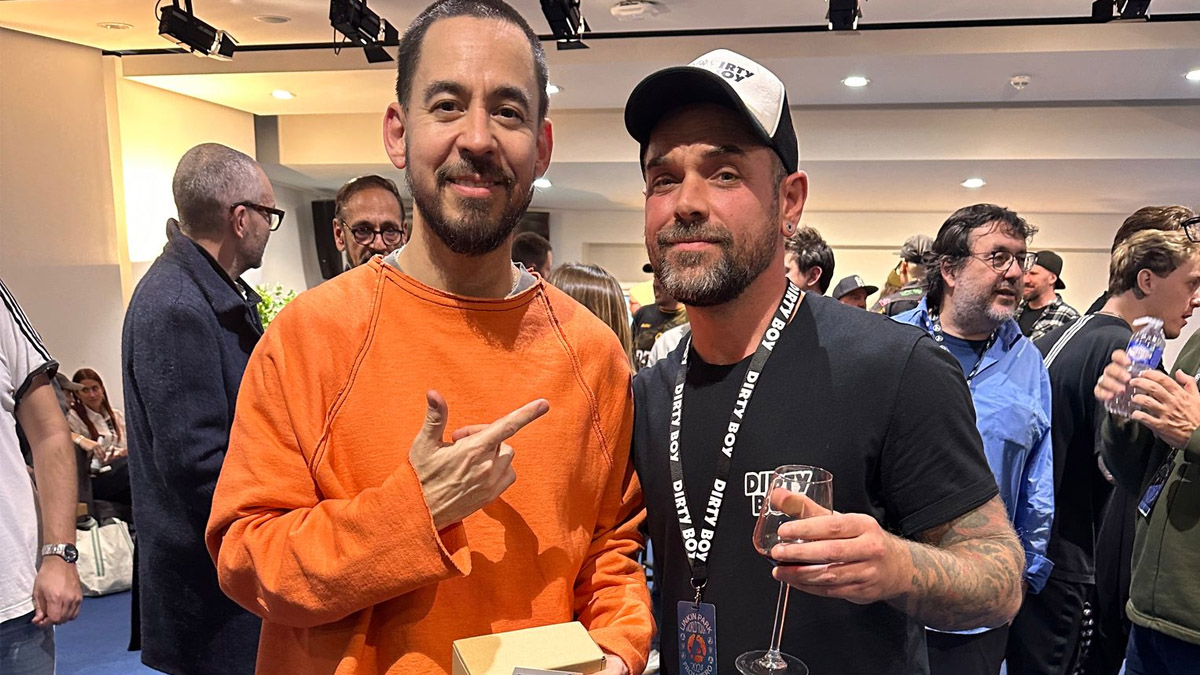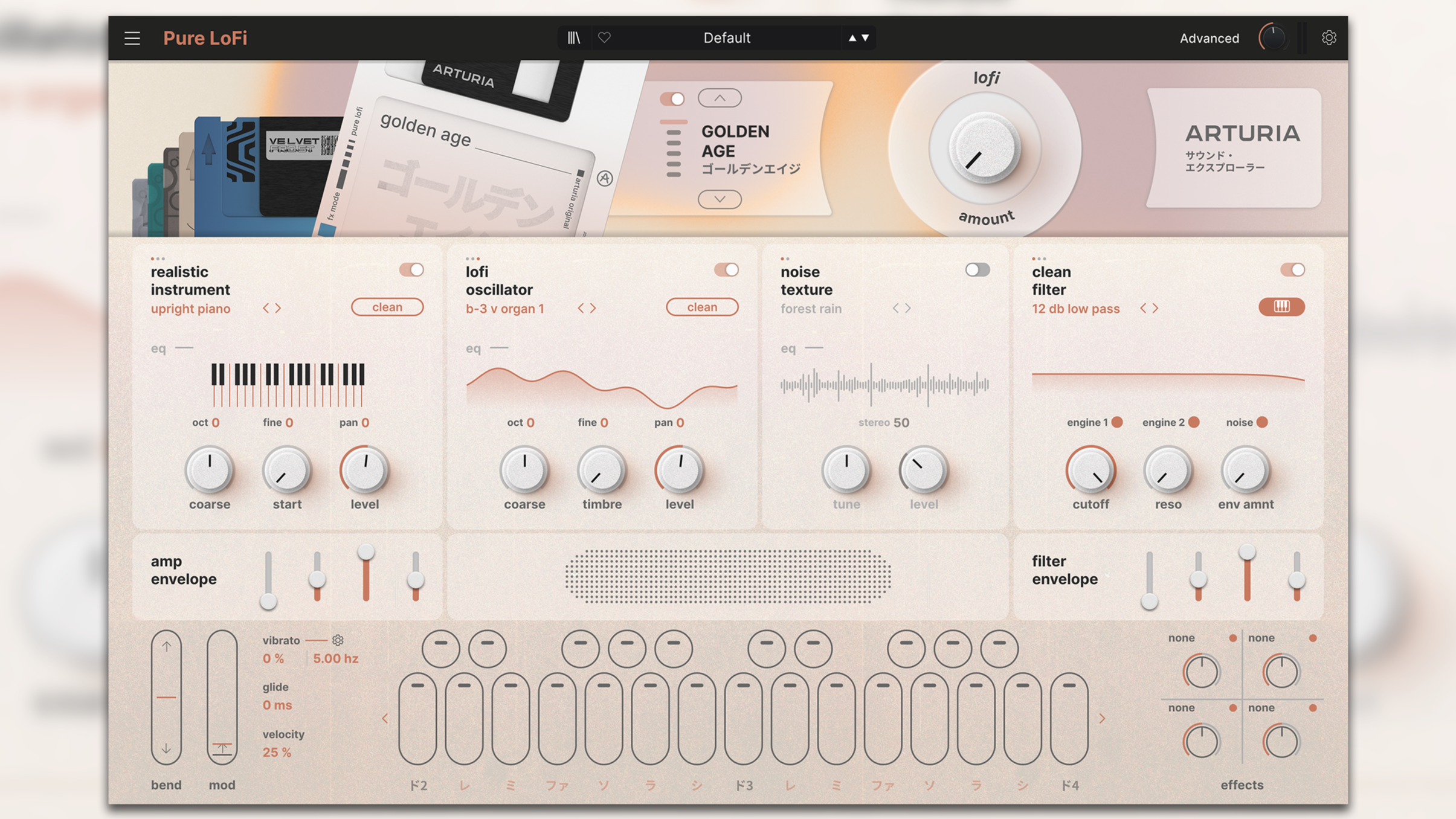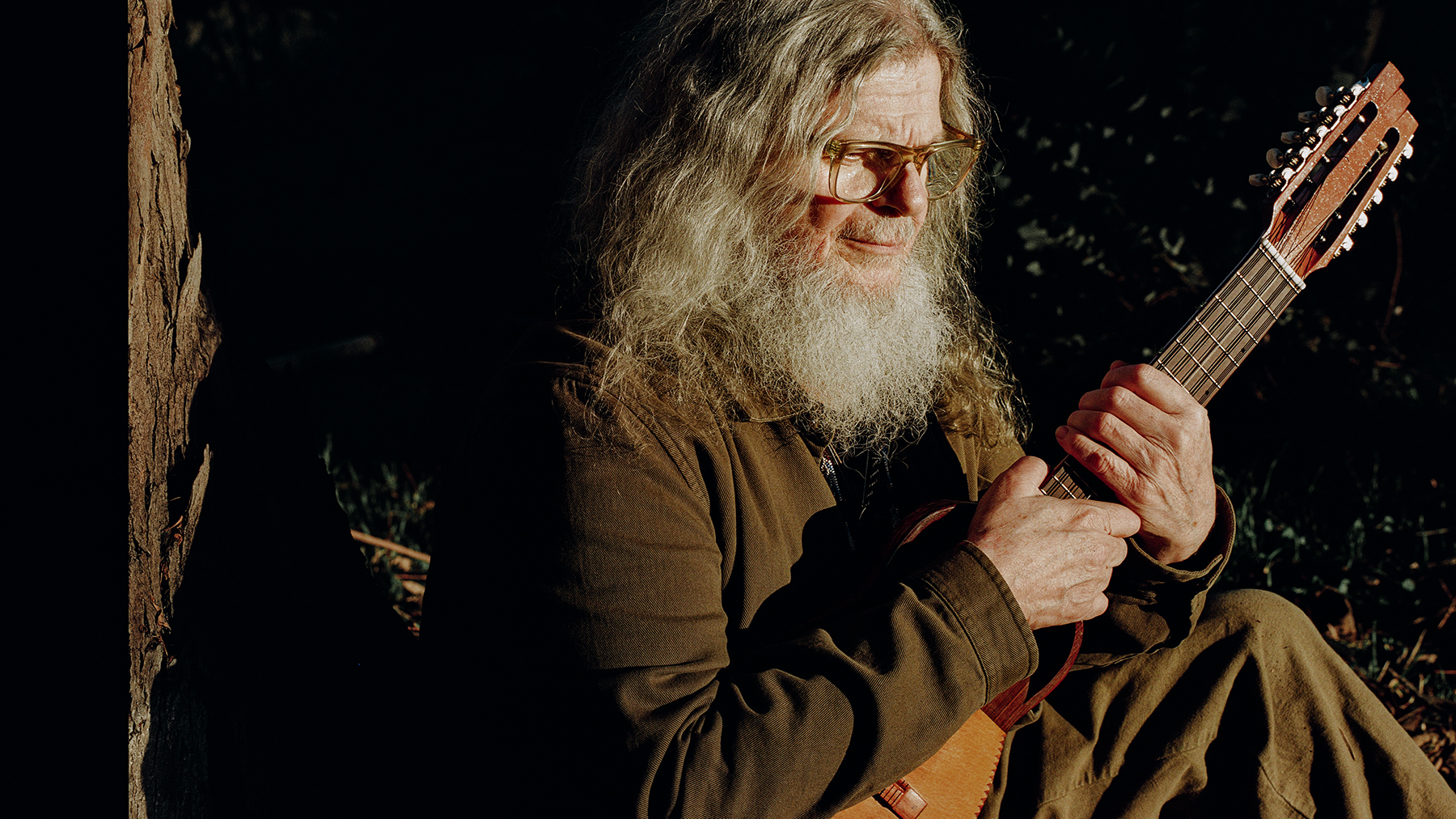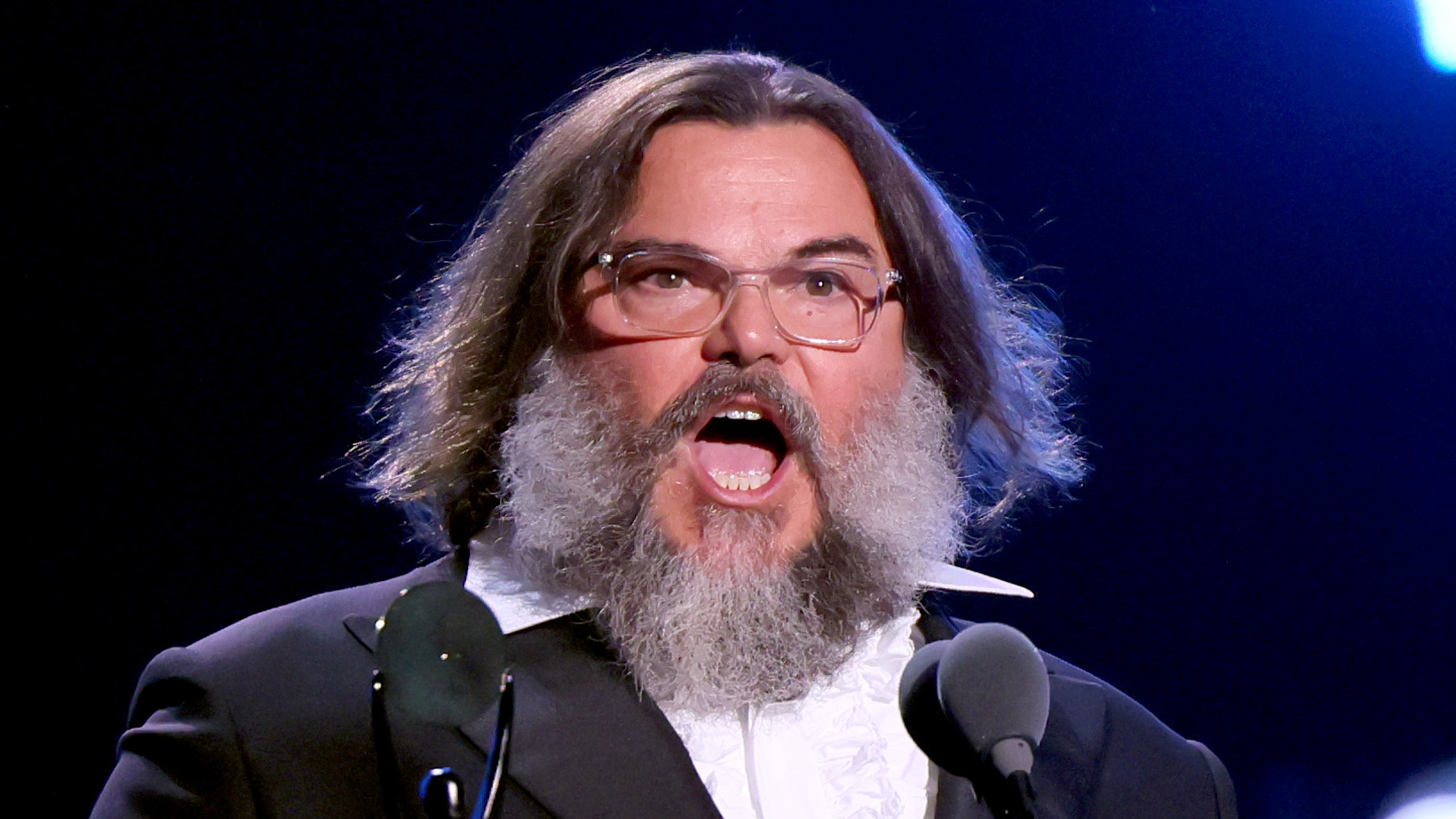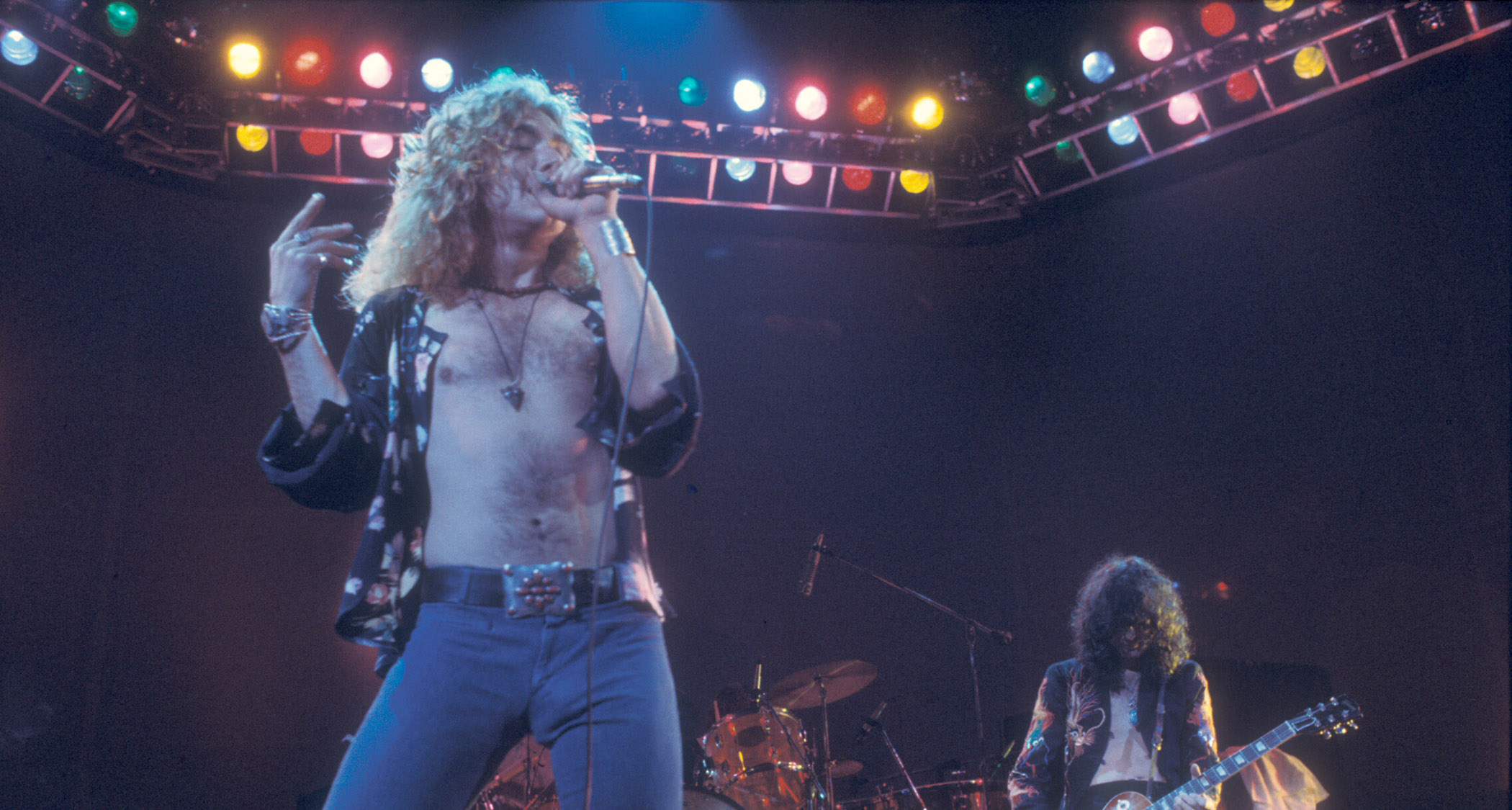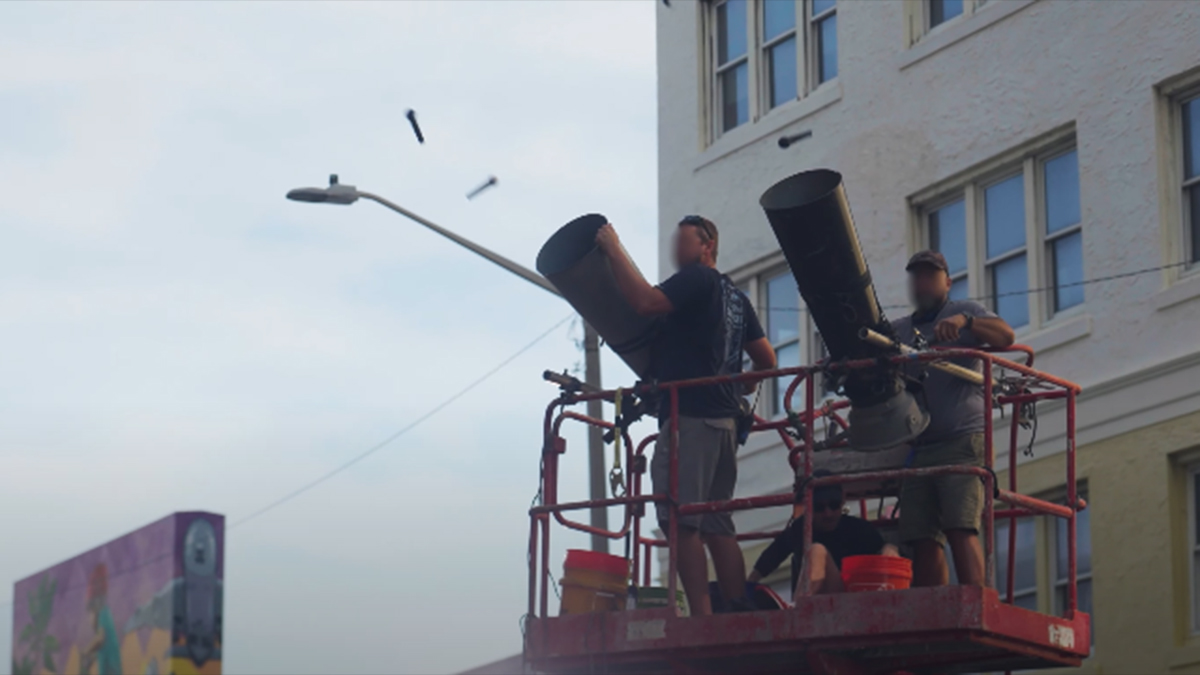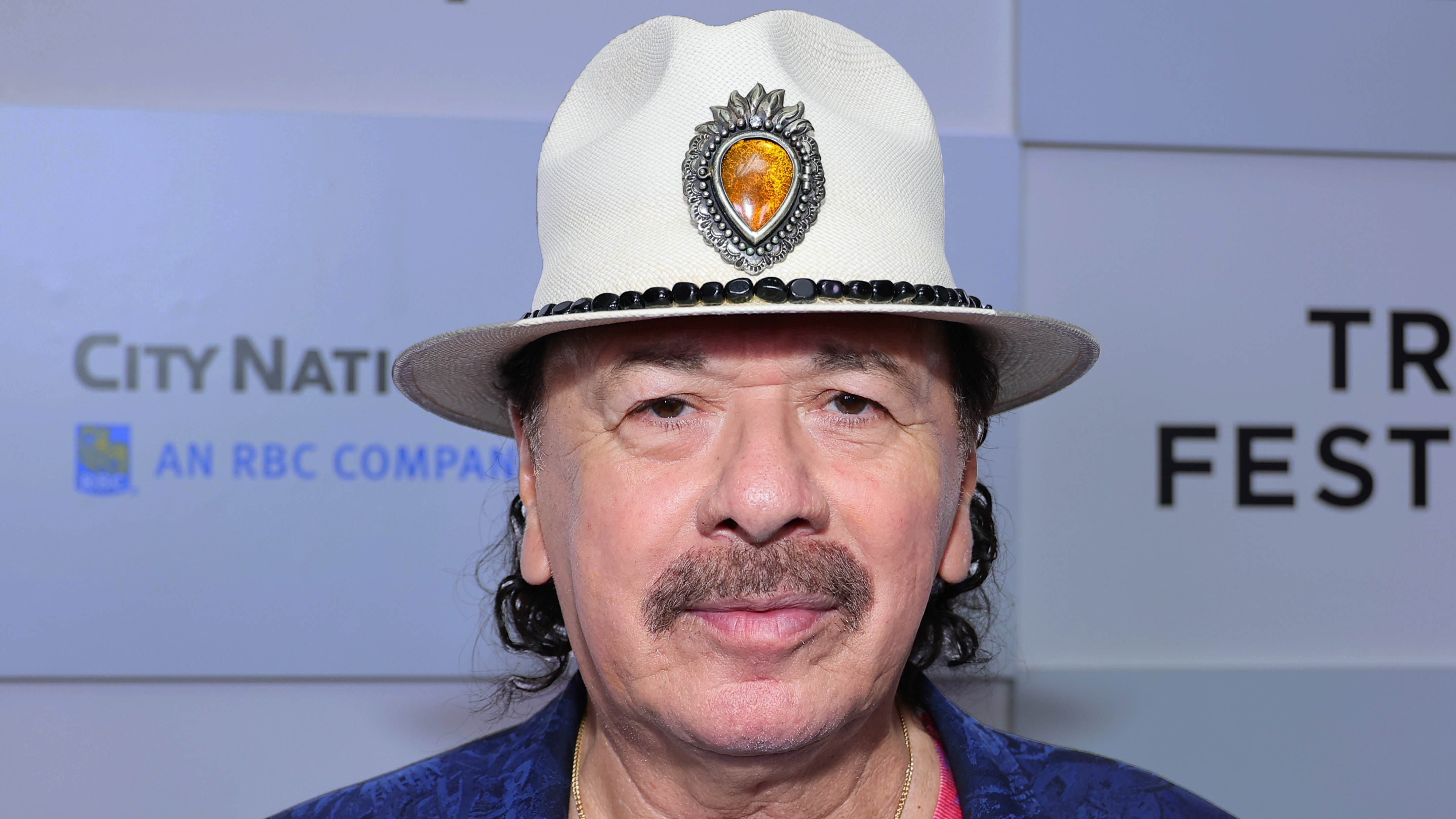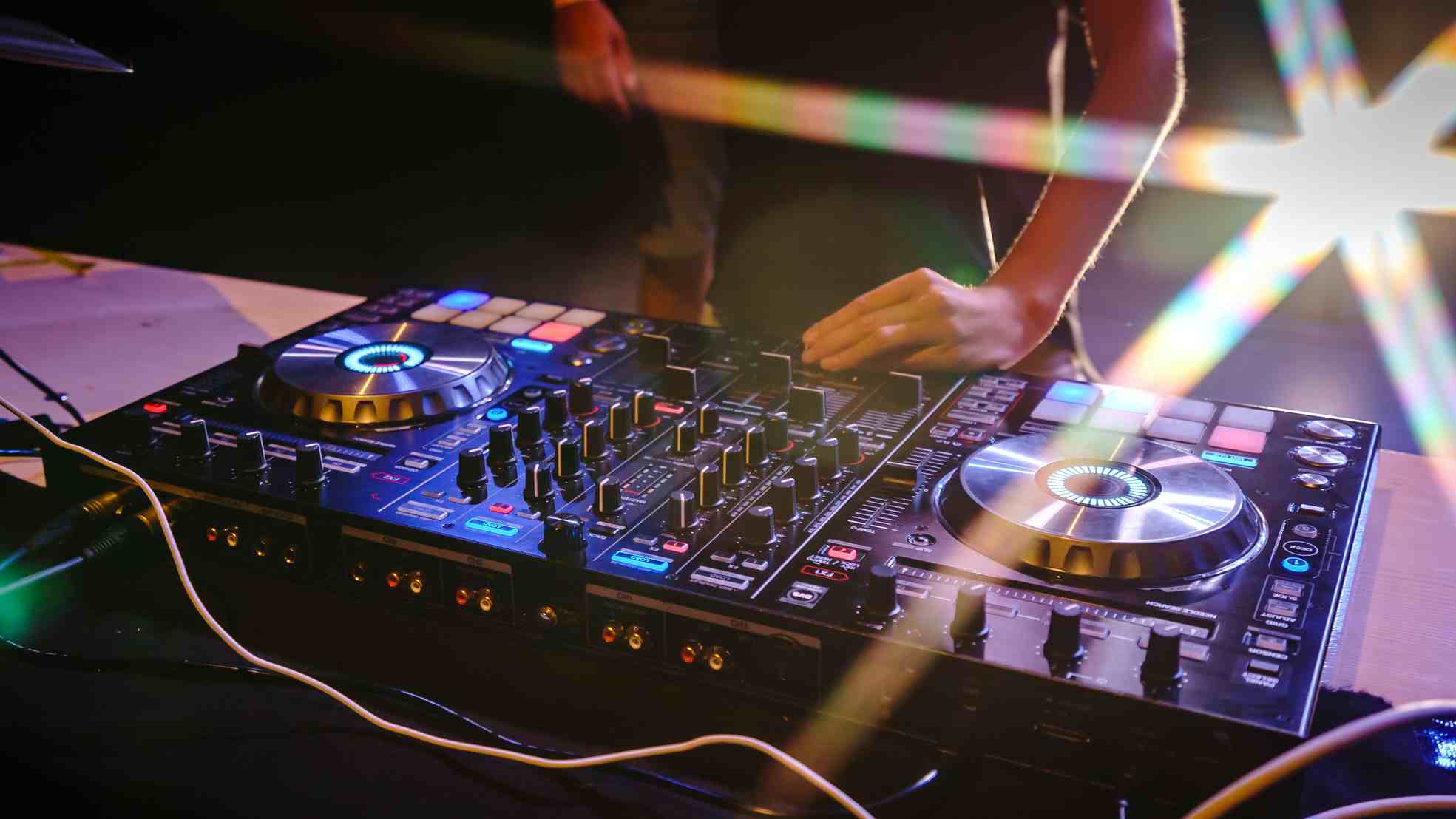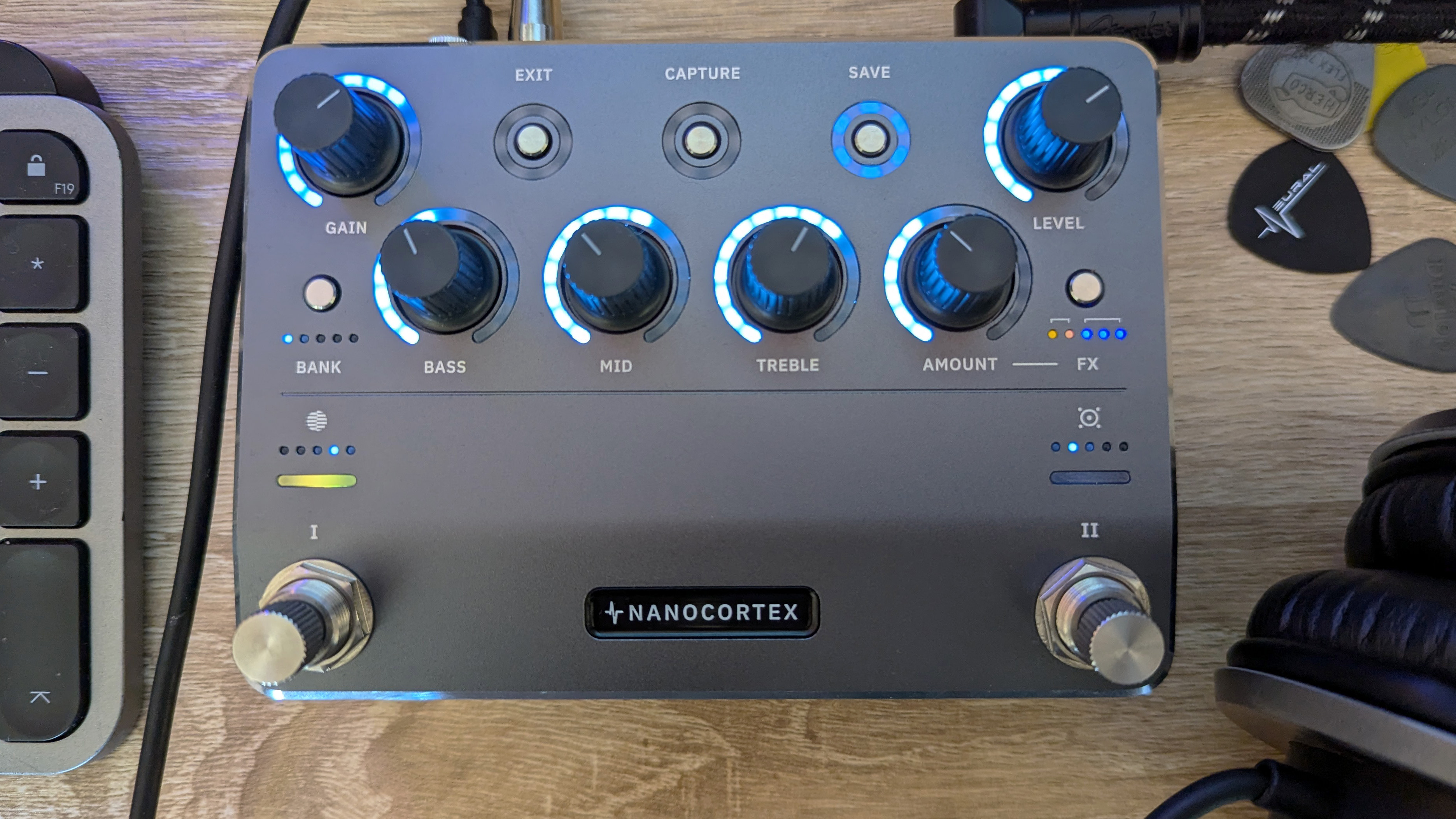Behind the drums - Steve White: “What a wonderful community the drumming community is”
Former Style Council drummer on his commitment to fostering the next generation's voice
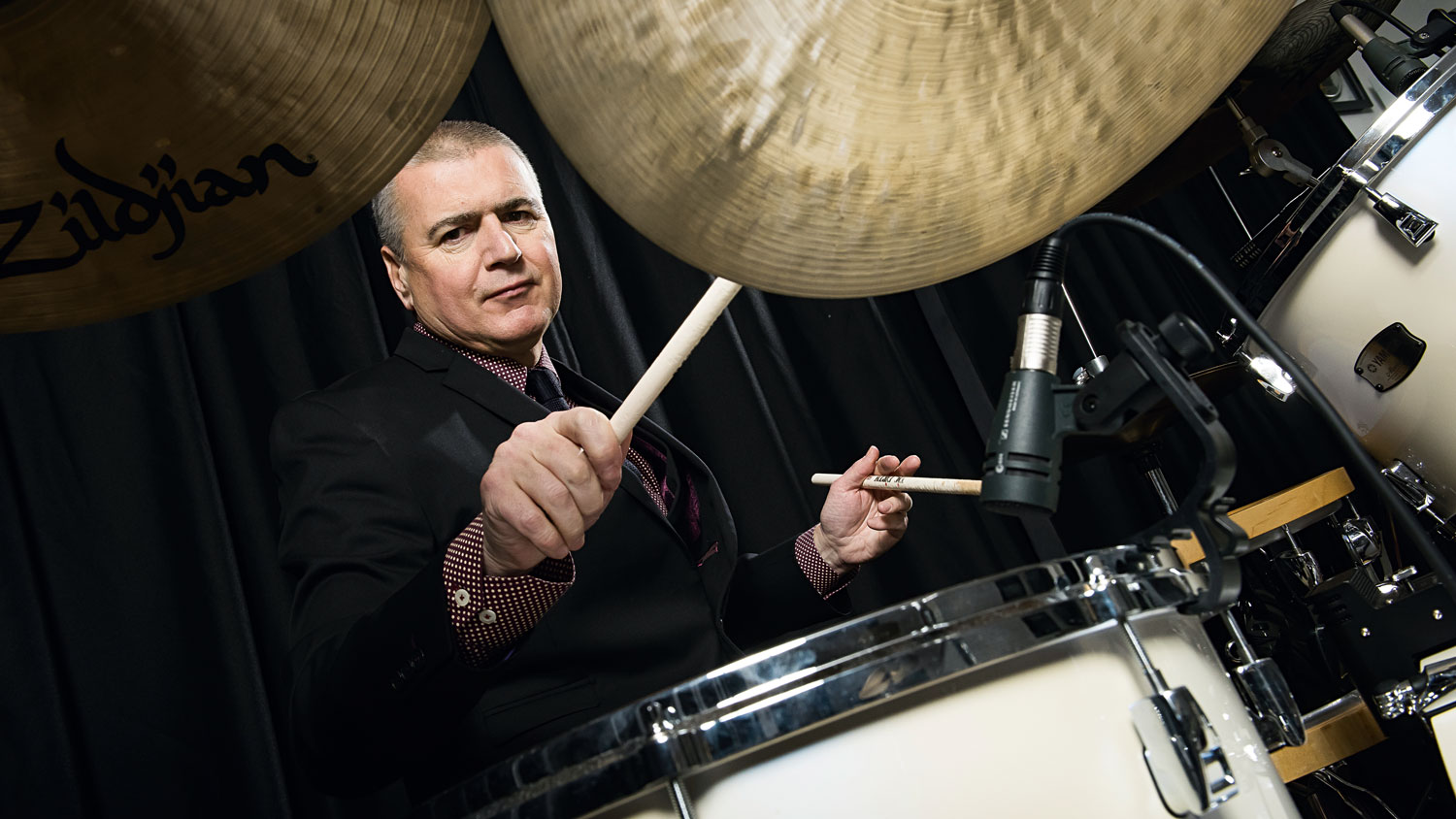
“I respect anybody who is doing great things with their past glories, but for me the buzz is now,” says Steve White. The host of The Art Of Drumming on Sky Arts, White has been one of the pillars of the British drumming community since his first big break joining The Style Council as a teenager some 35 years ago.
A lifelong believer in sharing his wealth of knowledge, White teaches both at Trinity Laban and his newly-opened South East School Of Contemporary Music in Hextable, Kent. With five full drum kits, all paired with beautiful Zildjian cymbals, the new school is a drum teacher’s dream.
“As you get older and you have commitments and a family, the travelling does become quite a hard decision. I toured for 25 years before I found it more productive to be more studio and London-based,” says White.
While he might no longer be living out of a suitcase, there’s never been any sense of White leaning on past glories as a musician. He’s constantly making new music, whether that’s with The Family Silver, playing the new Hague & White album, or sitting in with his friends in Stone Foundation.
And as The Art Of Drumming bears ample testament, he remains one of drumming’s most articulate and passionate advocates.
Why did you decide to open the South East School Of Contemporary Music?
“This school came to fruition with my colleague Danny Rose about a year ago. Danny’s a drummer that’s played on the road for a long time working with bands, he plays with The Real Thing. As we’re getting older, we’re just looking to put roots down and to recognise the passing of time.
Get the MusicRadar Newsletter
Want all the hottest music and gear news, reviews, deals, features and more, direct to your inbox? Sign up here.
“When the opportunity came up to take on this place and the fact that it’s a professionally designed recording studio, we jumped on it. It’s in a great environment, lots of energy, lots of different classes going on, and then we’re here making music.
“I think we’ve got about 100 students a week. Danny takes care of the beginners, the intermediates, and I’m coming in for the pros and day experiences. I get people coming in from all over the country, from abroad, to spend a day, three or four hours with a break. It’s a good place to get a lot of work done.”
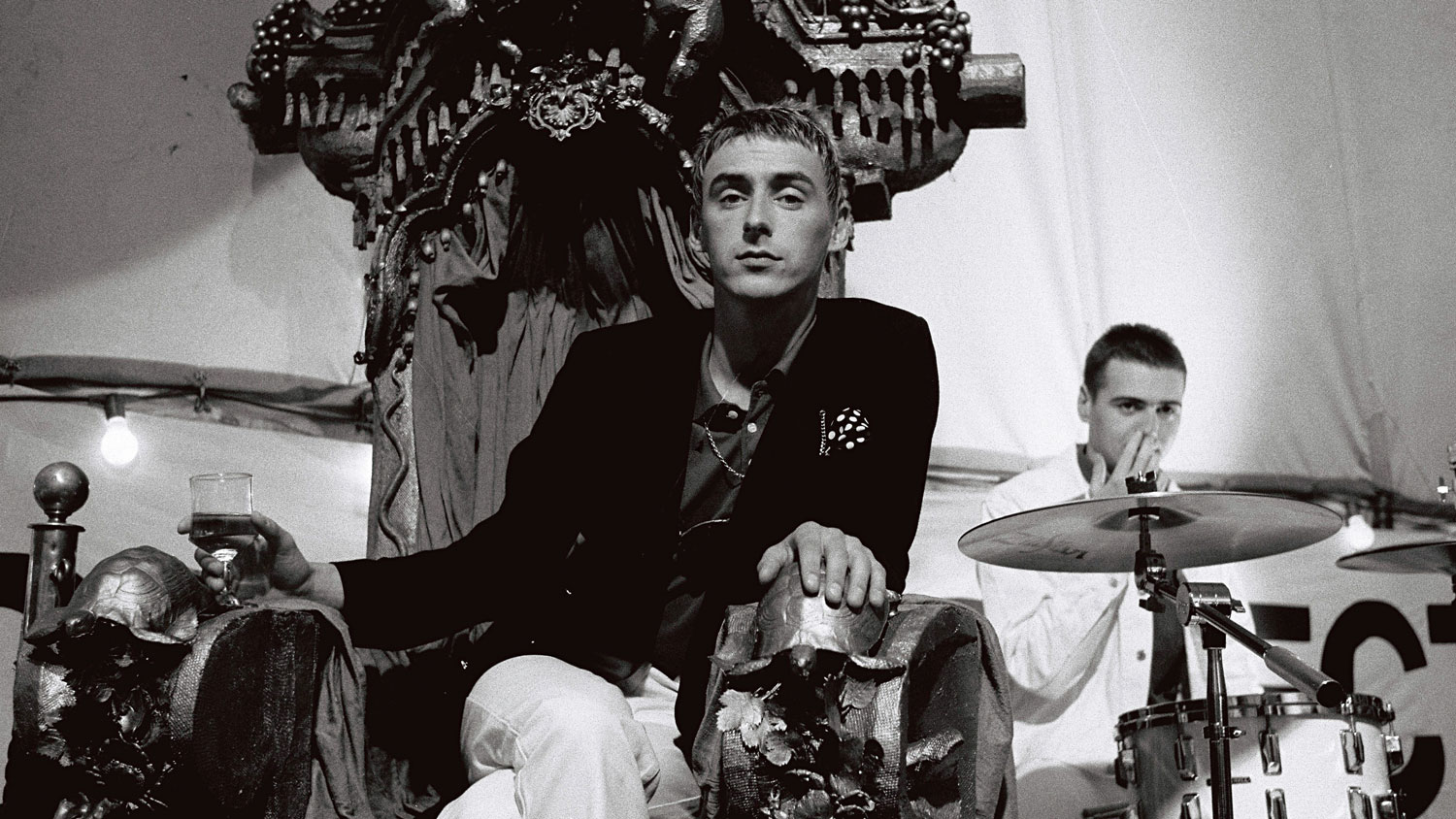
What do the people who come in for day experiences want to work on?
“We’ve got a tailor-made experience. I correspond quite heavily with people in terms of what they want to work on. A lot of the time people love to know about the up-down stroke techniques, the Moeller hand technique.
“I’ve just been doing a whole bunch of stuff myself where I’ve been looking at the application of rudiments around the drums, how to execute and practise better, time utilisation. It will be based on what the person wants. I don’t really do a lot of lessons for people on a weekly basis, it’s more people that come for a bit of inspiration, an MOT, just a different viewpoint.
“I work with a lot of professionals now, I get fantastic drummers coming in and I learn from them as well. With the younger drummers, quite a lot of it is helping them to make sense of the crazy world of the music business, a little mentoring.
“At my age I’m fairly set in my ways and I know where the BS lies, I try to have a more holistic approach so people come out feeling motivated, inspired to get better as a drummer, but especially for some of the younger players, a little good advice that’s going to help them with their careers.”
Drumming seems to go through phases, whether it’s playing polyrhythms or the guys who are all about groove. Does that impact drum education?
“It does and what’s interesting at the moment is that there are a lot of younger players interested in what I would class broadly as R&B. I’m not talking about R&B as in American videos of guys in massive cars with women twerking, I’m talking about rhythm and blues, the origins, New Orleans music, clave, all the way up into the mystical realms of James Brown.
“You get drummers that lead the way, people like Nate Smith doing that really tight groove stuff, and it does influence players. When these trends and technical obsessions come about, there’s usually a drummer that’s incredibly confident at the core of it leading the way.
“A lot of the battle is getting beyond that, trying to be inspirational about the music, talking about the influences, about Earl Palmer, Baby Dodds and Jo Jones all these wonderful things but also to really try to help any student discover their inner voice on the instrument.
“That’s the thing, it doesn’t matter how good your polyrhythms are or how deep you think your pocket is, if you have no personality when you play, then nothing’s going to come from that. I always tell anyone I’m teaching that technique is only one of the tools you need in your tool box.
“Being a musician is the thing that is going to inspire longevity and for you to be a successful part of the music-making process which still, ultimately, is the most important thing for me.
“I went to see Steve Gadd recently at Ronnie’s. Steve is the consummate taste master. He uses his tools so beautifully. When he goes for it, he goes for it but a lot of the time he’s just playing to support the music.
“It was really interesting looking around the room at how many drummers were besotted by the fact that they were watching a master at work in an environment where he was playing music and not just exercising chops.”
The sessions of old with the accountant with a suitcase full of cash at the end of it are long gone. That’s the reality
How do the students at your school compare to those at Trinity Laban?
“It’s been a very interesting journey about how the whole system works in terms of what to expect when you go to a conservatoire, which Trinity is. You are putting yourself in the frame for possibly the best knowledge and gateway to work of a certain kind.
“All of the graduates that I’ve had in my time at Trinity have gone on to work. People like Matthew Arnold who’s toured with Thriller and is doing the West End, playing on the Aladdin show. Isis Dunthorne has her feet under the table at Motown now, because musical theatre has become a big thing that a lot of young players aspire to.
“The quality of what we put on in London is a real draw for younger players. I have another student, Becky Brass, who has been touring for two, three years doing theatrical productions. It’s interesting to see that that is now considered a really viable way to make a living in the music industry.”
Doing remote recordings seems to be another new facet to your career?
“Necessity. It’s recognising that change is coming, recognising that the sessions of old with the accountant with a suitcase full of cash at the end of it are long gone. That’s the reality.
“We’ve had a seismic change in the way that the music business works, and I can see younger players managing it now. Some older players are finding it almost overwhelming to deal with, but I could see what was happening and that change was going to come.
“Now, it makes perfect sense to have a studio where I can take the lead, recording here and sending it back. My lovely little Yamaha digital desk probably has more technology than Motown had. I record everything flat, I don’t really go for big effects because you can get addicted to the whole gear thing.
“It’s recorded in a nice room with some lovely Sontronics mics and if the drums are tuned well and it’s a nice room, you’re going to get a good sound. In October, November 2018, I had five different singles that were released and for me that is the thing that most excites me – a new track, a new album.
“I’ve recently catalogued on Spotify and I’ve got 700 tracks going back to 1983 and The Style Council, Paul Waller, Ian Dury, right up to date with Hague & White, Stone Foundation, Trio Valore. That’s the legacy, that’s never going to go away.
“I love touring but playing on records is timeless and it’s really inspired me to be a good musician. Going into a studio with Dr John or John Martin and trying to find out what they want from that particular experience, then trying to come out with something finished and go, ‘Yeah, that sounds good,’ that’s always been the thing that gives me a buzz.”
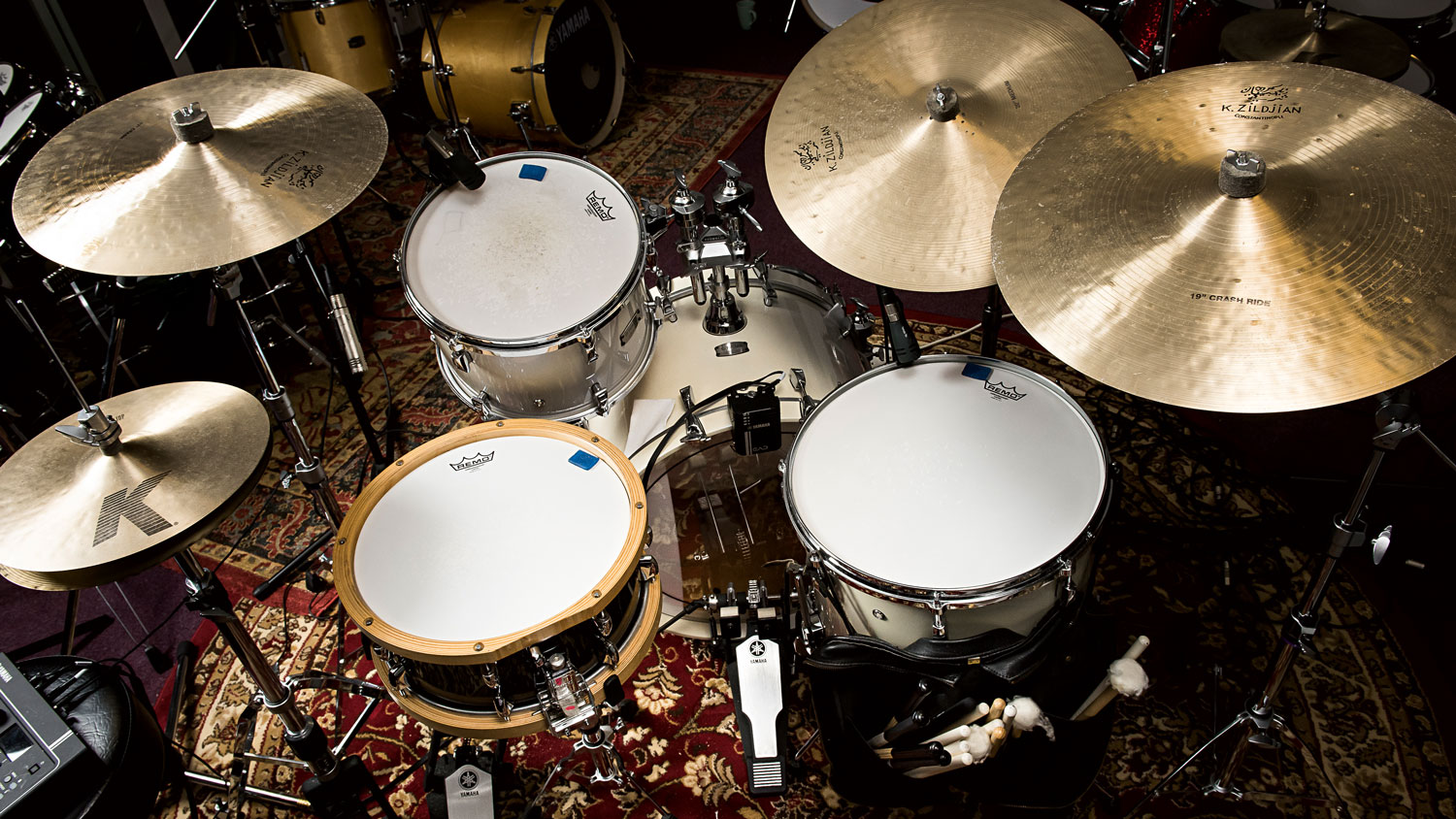
Was Hague & White’s album The Eleventh Hour a remote session?
“No, that was something where the guys had started the project with another drummer, Dee Boyle, who sadly passed away, and were at a bit of a loose end as to how to finish it. They contacted me via my website and asked if I wanted to play on some tunes at their studio. Chris and Joel have a studio called Tesla, which is very well known in the Sheffield area.
“I was staying in Manchester at the time, I heard a couple of demos and thought, ‘I really like this, it’s really good,’ so I got my kit into the car and drove across the Pennines just as the snow was starting to fall. It was a freezing cold day in January and we went into the studio.
“I was booked for two days to do four or five tracks, we started playing and after the four or five tracks the guys were like, ‘We’ve got some more, do you want to hear them?’ We ended up doing 10, 12 tracks in two sessions.
“The influences are fairly obvious, there is a nod to organic soul and funk, a little bit of psychedelia, it’s all real instruments, Hammond and unaffected guitars. But then in terms of the production it’s very modern so it has a foot in both camps.”
Will you tour the album?
“The music business is no different from the real world. There are lots of people who are doing really great out of music, and there are lots of people that are struggling. As with so many things now, we’ve lost the middle ground. You’re watching tours grossing billions of dollars and then you’re watching bands fold because they can’t get 50 people to a show. That’s not just music, that’s society.
“The ‘haves’ have never had more, and the ‘have nots’ have never been more abundant. I’m sure a lot of my colleagues reading this would agree with me, that middle ground is very difficult, to be selling a couple hundred tickets and making money.
“The guys in the Stone Foundation are trying to keep a nine-piece band on the road. It’s really hard. It’s not ‘poor me’, it’s just how it is, so if we’re going to do shows, I want to make sure people come.
“With The Family Silver, we were putting out new music and we made a few mistakes along the way in terms of promotion. Now we’re working with a label, Monks Road Records, which has been the most exciting thing for me. Richard Clarke who runs it is a very successful businessman who’s got a real love and passion for music and a commitment to musicians.
“We’ve been able to go down to Monnow Valley and make this Monks Road Social album that’s coming out, which I actually recorded a drum solo on. It’s called ‘Bronwyn’ and it’s a massive drum solo and Richard loved it and put it on the record.
“We’re building things up in a very realistic way as a label and as a band. When we put out The Family Silver album, we were booking venues and tribute bands were selling more tickets than we were. Good luck to them, there’s no bad karma about that, but it’s quite disheartening because my commitment is not in the past, it’s in the present and the future.
“I’ve got to be realistic and appreciate musically that audiences of a certain age don’t want to hear new stuff. They like where they’re comfortable. If the demand is there then we will play but I’m not going to make the same mistakes as the past, putting my heart and soul into something and 15 people turn up.”
For The Art Of Drumming documentary, I wanted to hear what the elder statesmen have got to say just for the record.
How did you end up presenting The Art Of Drumming?
“My lovely wife, Sally, came home from an awards ceremony one night and said, ‘You’re going to make a TV series.’ I thought she’s probably had a couple of glasses of wine, ‘Can we talk about it in the morning?’
“Basically, Phil Edgar-Jones, who Sally is friends with, came over and said, ‘I want to make a documentary series on Sky Arts about drumming because it’s never been done before, and would Steve be interested in being involved?’ It happened really quickly and before I knew it, we were with Chris Wilson, a brilliant director who did such a fantastic job, drawing up a wish list of drummers we’d like to talk to.
“It had been something I’d really wanted to do for a long time going back to 2008 when I got involved with what eventually became the tribute to Ginger Baker. Originally, they were talking about doing a tribute to Charlie Watts and Mitch Mitchell.
“I got to know Mitch fairly well, just chatting to him and helping him to restore a drum kit that Tony Williams had given him, it was wonderful. And then all of a sudden, he was dead.
“And not long after that Jon Lord, who played with Trio Valore at the Ginger Baker tribute, was gone. It made me think, we need to be documenting what these people have to say.
“Obviously, we needed young players, Fay Milton, Ben Thatcher, Victoria Smith, in the documentary, but I wanted to hear what these elder statesmen have got to say just for the record. People like Hal Blaine, Bernard Purdie, Billy Cobham, Thomas Lang, Dave Weckl, Steve Gadd, Ian Paice, Mike Portnoy, all agreed.
“It was incredible. I remember talking to Chris Wilson, the director, and he said, ‘This wouldn’t happen in any other field, it just would not be this easy.’ It really shows what a wonderful community the drumming community actually is. I was able eventually to find out what a TV presenter does, I had to learn my lines, it was a wonderful experience, a real career highlight.”
Zak Starkey is back in The Who. “I take responsibility for some of the confusion… Zak made a few mistakes and he has apologised”, says Pete Townshend
“I oversaw every element - not just the music and the lyrics and the melodies and the production, but also the merch and the fan clubs and everything”: Mike Portnoy talks about his years away from Dream Theater
